Broken Bonds
Broken Bonds
What Family Fragmentation Means for Americas Future
Mitch Pearlstein
ROWMAN & LITTLEFIELD
Lanham Boulder New York London
Published by Rowman & Littlefield
A wholly owned subsidiary of The Rowman & Littlefield Publishing Group, Inc.
4501 Forbes Boulevard, Suite 200, Lanham, Maryland 20706
www.rowman.com
16 Carlisle Street, London W1D 3BT, United Kingdom
Copyright 2014 by Rowman & Littlefield
All rights reserved. No part of this book may be reproduced in any form or by any electronic or mechanical means, including information storage and retrieval systems, without written permission from the publisher, except by a reviewer who may quote passages in a review.
British Library Cataloguing in Publication Information Available
Library of Congress Cataloging-in-Publication Data
Pearlstein, Mitchell B., 1948
Broken bonds : what family fragmentation means for America's future / Mitch Pearlstein.
pages cm
Includes bibliographical references and index.
ISBN 978-1-4422-3663-9 (cloth : alk. paper) -- ISBN 978-1-4422-3664-6 (electronic)
1. Families--United States--History--21st century. 2. Interpersonal relations--United States. I. Title.
HQ536.P3787 2014
306.850973--dc23
2014008096
 TM The paper used in this publication meets the minimum requirements of American National Standard for Information Sciences Permanence of Paper for Printed Library Materials, ANSI/NISO Z39.48-1992.
TM The paper used in this publication meets the minimum requirements of American National Standard for Information Sciences Permanence of Paper for Printed Library Materials, ANSI/NISO Z39.48-1992.
Printed in the United States of America
For children who arrive in this world on the wrong side of Lottery Roads.
Acknowledgments
When a person writes about the biggest domestic problem facing his country, his gratitude for the people aiding his efforts ought to be big, too. They are. I start with profound thanks to one of the most talented groups of men and women Ive ever worked with, the books forty respondents, who were uniformly generous with their insights and time when I came calling, from California to northeast of the New York island, with questions such as: At the risk of melodrama, what do you think the United States might come to look like when you take your last breath? And there were hard questions, too.
As I note in the introduction, the respondents did not represent a scientific sample, only a brilliant one. They were a perfect group for what I might describe as a qualitative exercise in academically informed journalism. It was a pleasure visiting with every one of them face to face, coast to coast, and home in Minnesota.
Toward the end of the interviews in late 2013, I had the good fortune of visiting the staff and nationally drawn Research Advisory Group of the Oklahoma Marriage Initiative in Oklahoma City. The OMI is regularly recognized as the best such program in the nation, and while I was there for just a few days, it was easy to see why, starting with their hospitality. Much obliged.
Lugging two pocket-sized recorders around the country may not be physically challenging, but I can say without question this project would have been fiscally impossible without the support of the Lynde and Harry Bradley Foundation, the Chiaroscuro Foundation, the LML & FTL Lanners Foundation, Karen and Mahlon Schneider, and others. Thank you for your faith.
This is not the first book of mine for which Beverly Hermes has transcribed interviews, upward of four thousand pages and counting. Simply put, I cant imagine anyone better at her craft or more enjoyable to work with. On further thought, make that I cant imagine anyone as terrific at her craft. I extend my ongoing thanks to her.
My American Experiment colleague Peter Nelson turned the digitally recorded interviews into CDs and then sent them off to Beverly, once again never losing a word along the way. I readily concede I wouldnt have had a clue how to do it myself. My appreciation to him as well as to Britt Drake, another American Experiment colleague, who, in addition to once again leading the way with formatting, electronically carved out and sent hundreds of separate excerpts to the respondents so that they might review how I had quoted and paraphrased them.
Great thanks as well to another American Experiment colleague, Peter Zeller, for getting me from city to city as cheaply as possible, driven as he is at playing Orbitz against Travelocity against Expedia against Priceline against Kayak and who knows what else. My debt to old friend and Senior Fellow Kent Kaiser for constructing an especially helpful index for the book, and to Anne Mason for leading the way in promoting it every which way across the continent.
As for the rest of the staff and our board of directors, everyone contributed if only by doggedly not barking, Arent you done yet?
This is the second book of mine that Rowman & Littlefield has published; the third, actually, if we include an anthology about the fatherhood movement that I coedited sixteen years ago along with Wade Horn and David Blankenhorn. Ive been proud to be associated with R & L and its imprints each time, and Im particularly thankful this time around to Jon Sisk, Ben Verdi, Laura Reiter, Gene Margaritondo, and Sarah Stanton.
This likewise is at least the third book in which Ive gratefully noted that I do much of my writing at my neighborhood Caribou Coffee. Yes, I have an office at Center of the American Experiment and another one at home, but something about the Caribou at Forty-Sixth and Nicollet in south Minneapolis strings out the best words in me. In addition to the better-than-Starbucks coffee, it must be all the hospitable human beans there.
And then there is my wife, the Rev. Diane Darby McGowan, who, in a book such as this, is implicitly the North Star, as how could I ever have the nerve to write about the importance and joys of marriage if I werent in a very good one myself? I couldnt and wouldnt.
Im writing these last paragraphs in our kitchen, as the two of us have just finished dinner. She went upstairs to rest, as shes had a taxing day, having visited a doctor who had drawn blood, albeit not much but not on purpose either. Somewhere between the chicken and broccoli, I was struck by the sequence of the previous half-dozen hours. We had seen the doctor together (dont worry; shell live). We had driven home together. She had watched a recorded episode of Downton Abbey as I worked elsewhere in the house. And then we reconnected for dinnerno television this time but certainly wine.
The term quality time is more frequently used in talking about parents and children than it is used in talking about husbands and wives. Either way, Ive never liked it very much, as it can suggest a need to seek orchestrated and meaningful moments rather than simpler daily kinds. Excitements and extravaganzas have their place, but a really good time for mebeing the measured but ultimately romantic guy I amis simple and warm time together.
A loving thank you to Diane and the rest of our family and friends for simple and warm times together. In ways you dont know, youve given life to this book. And to me.
Minneapolis
March 2014
Introduction
They talked about slow declines, not fast ones. They saw a future America suffering the kinds of troubles we currently have, only more so. A place where have-nots have a harder time becoming haves. They imagined the United States as still the worlds leader, but perhaps not. Still an economically successful nation, but a less innovative one. They assumed a less-unified America with whiffs of unraveling.
Selected views of respondents in Broken Bonds
Next page
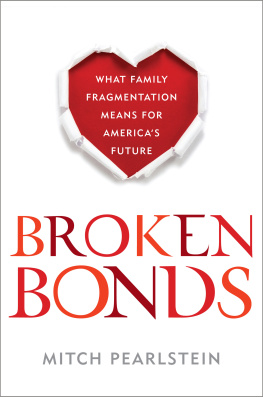

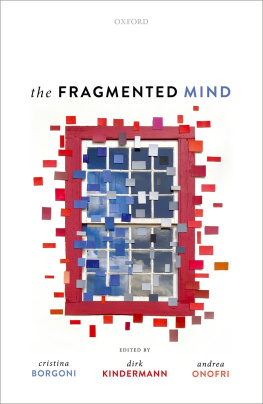
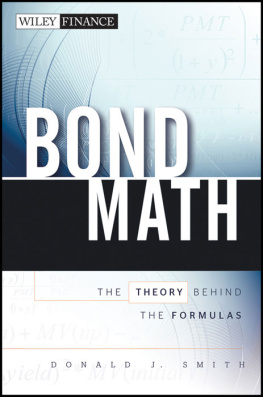
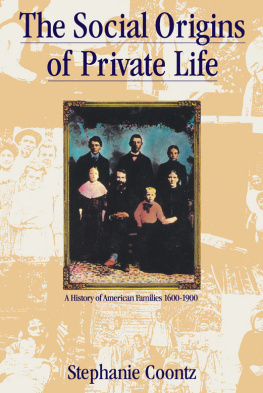
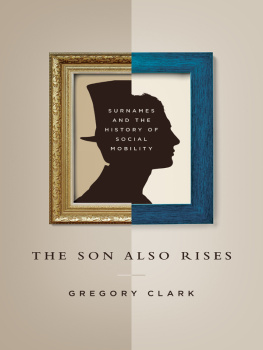
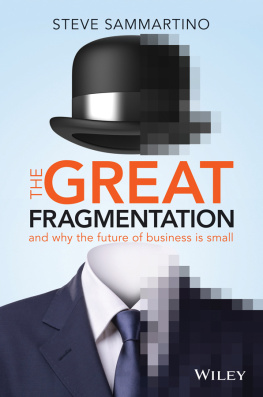
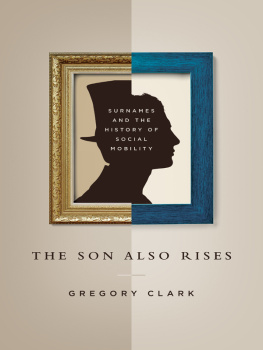
 TM The paper used in this publication meets the minimum requirements of American National Standard for Information Sciences Permanence of Paper for Printed Library Materials, ANSI/NISO Z39.48-1992.
TM The paper used in this publication meets the minimum requirements of American National Standard for Information Sciences Permanence of Paper for Printed Library Materials, ANSI/NISO Z39.48-1992.